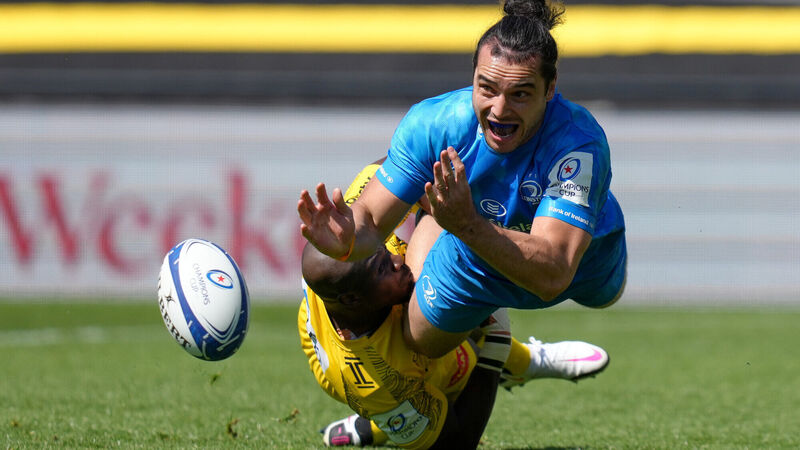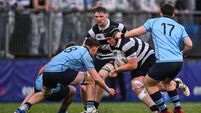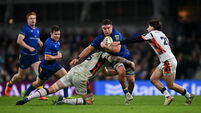Donal Lenihan: La Rochelle's balance and variety dismantles Leinster

Leinster’s James Lowe is tackled during the Heineken Champions Cup semi-final. Winning all the psychological battles, La Rochelle grew in stature throughout the game.
With confirmation last week that Twickenham will host the Heineken Champions Cup final in front of a crowd, albeit limited to 10,000 fans, those tickets were like gold dust and sold out in no time in advance of the semi-finals.
No doubt many bought in anticipation of the dream final with Toulouse and Leinster both looking to become the first side to win five Heineken Champions Cups. Since the victory in their last final appearance back in 2010, Toulouse have been chasing that fifth European star for their famed red and black jersey. While far from their best in their 21-9 win over Bordeaux-Begles on Saturday, they achieved their primary goals of reaching the decider.













